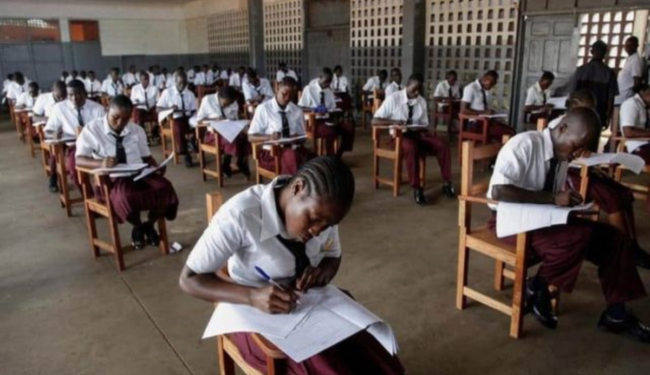
The Academic Staff Union of Universities (ASUU) has called on Nigerian students to reject federal government’s plan to abolish the Tertiary Education Trust Fund (TETFund) across the public institutions.
The union alleged that the proposed tax policy is a plot to kill public institutions to thrive private schools largely owned by political leaders. In an interview with journalists, the Owerri Zonal Coordinator of ASUU, Prof. Dennis Aribodor, urged the National Assembly to be wary of the potential consequences of abrogating TETFund.
He said for the last one-and-a-half decade, the agency has been the backbone of Nigeria’s public tertiary institutions, supporting infrastructural development, postgraduate training, and research capacity building.
Aribodor noted that a section of the tax bill proposed to end funding of the agency by 2030, and thereafter cede its responsibilities to the newly established Nigerian Education Loan Fund (NELFUND).
He said: “ASUU is alarmed by this dangerous and unpatriotic aspect of the proposed new tax regime, which stipulated that the education tax, called development levy, used to bankroll TETFund’s programmes, should be ceded to the newly established NELFUND.
“ASUU notes with serious concern, section 59(3) of the Nigeria Tax Bill 2024, which specifically stated that only 50 per cent of the levy would be made available to TETFund in 2025 and 2026, while National Information Technology Development Agency (NITDA), National Agency for Science and Engineering Infrastructure (NASENI), and NELFUND would share the remaining percentage.”
While TETFund will also receive 66 per cent in 2027, 2028 and 2029 years of assessment, it has zero per cent in 2030 year of assessment and thereafter.
“This is alarming and should not be allowed, particularly when priority has not been given to funding public education through budgetary allocation by successive federal and state governments.
The ASUU chief, who recalled the role played by the union in the introduction of Education Tax Fund (ETF), which metamorphosed into TETFund, said: “Going back to history, the 1980s were particularly difficult for Nigerian universities and other tertiary institutions. The economic downturn, compounded by the implementation of the Structural Adjustment Programme (SAP) of the Ibrahim Babangida administration, masterminded by the International Monetary Fund (IMF) and World Bank, led to cuts in public spending on education. Universities and other tertiary institutions were starved of resources, and lecturers were poorly paid.
“ASUU, recognising that the future of Nigerian education was at stake, embarked on a series of strikes and negotiations with the government. Its demands were clear: improved funding for universities and education, respect for university autonomy, and better welfare for lecturers.”
He noted that the agency has since become one of ASUU’s most significant achievements, channelling much-needed resources into the tertiary education sub-sector for infrastructural development, research, and teaching facilities.
“A tour of any campus of any public tertiary institution in Nigeria will bear eloquent testimonies to the establishment of TETFund. Federal and state-owned tertiary institutions are currently referred to as TETFund institutions because most projects are funded from this agency and should not be killed through the Nigeria Tax Bill 2024.”
He pointed out that the implication of the new tax system is that from 2030, all funds generated from the development levy will be passed to NELFUND.
According to him, ASUU finds this development not only worrisome, but also inimical to national development because of the potential danger it has to the survival of TETFund.
He maintained that giving zero allocation to TETFund from 2030 is a technical way of killing the agency and public tertiary education, while describing the directive to TETFund to generate its funds as spurious and ill-advised.
Aribodor argued that replacing TETFund with NELFUND is comparable to killing a parent to keep a newborn alive; insisting that such is unethical and against the principle of natural justice.
He lamented that replacing the agency will take public tertiary education many years back, and undermine the modest gains in repositioning Nigerian universities for global reckoning and transformative development.
The ASUU chief noted that yearly supports given to tertiary institutions by TETFund have substantially reduced industrial crises in many tertiary institutions, while infrastructural and staff development have doused labour-related agitations on campuses.
“Nigeria should be improving on the operations and sustainability of the agency, and not planning to emasculate or abrogate it,” Aribodor stated.






